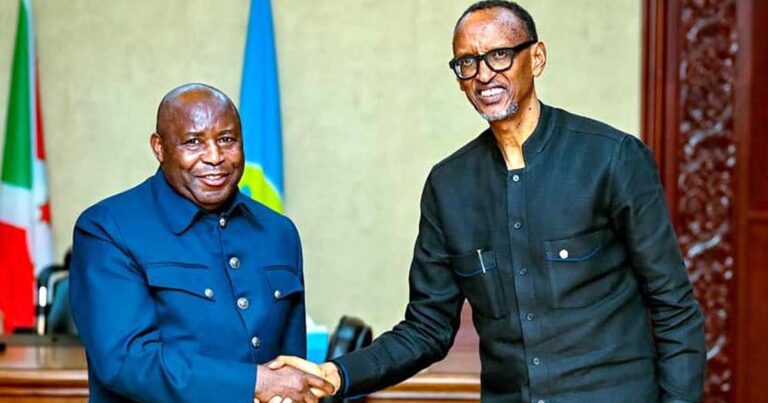Burundi recently announced an indefinite closure of its border with Rwanda, escalating tensions between the two nations. The decision came after Burundi’s President, Evariste Ndayishimiye, accused Rwanda of supporting the Red Tabara rebel group.
Martin Niteretse, Burundi’s Interior Minister, confirmed the border closure, with reports of travelers being stopped from entering or leaving Burundi in the northern region. Niteretse stated, “Today we closed the borders. And someone who will go there will not pass.”
The Red Tabara rebel group had claimed responsibility for an attack near Burundi’s western border with the Democratic Republic of Congo in December. While Burundi reported 20 casualties, Red Tabara insisted on causing nine military and one police fatality.

Rwandan President Paul Kagame denied allegations of supporting Red Tabara, leading to Burundi labeling him a “bad neighbor.” Rwanda learned about the border closure through media reports, expressing regret and stating it violated regional cooperation principles.
Burundi and Rwanda share a 315-kilometer northern border. This closure is not the first; in 2015, Burundi shut its border with Rwanda due to political tensions and later, as a COVID-19 precaution. The borders reopened after six years, but strained relations persist. Despite similarities in language, ethnicity, and colonial history, tensions have endured, impacting regional cooperation within the East African Community.
The recent border closure adds to the complex history of strained relations among East African Community nations, including Uganda, Kenya, Tanzania, South Sudan, Democratic Republic of the Congo, and Somalia. The move restricts free movement of people and goods, challenging the principles of regional integration.


